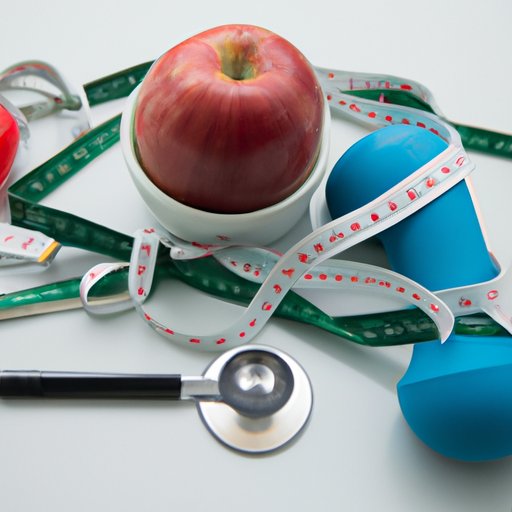
Introduction
High cholesterol levels can lead to the accumulation of plaque in your arteries, increasing the risk of heart disease and stroke. However, lowering your cholesterol levels through simple lifestyle changes can help you maintain a healthy heart and reduce the risk of cardiovascular disease. Here, we will discuss the different ways to lower cholesterol and regain control of your heart health.
Heart-healthy Diet
Eating a heart-healthy diet is paramount in reducing high cholesterol levels. A heart-healthy diet emphasizes whole grains, fruits, and vegetables while reducing the intake of saturated and trans fats.
Foods that are good for lowering cholesterol levels include:
- Fatty fish
- Avocados
- Olive oil
- Whole grains
- Fruits and vegetables
Foods that should be avoided include:
- Red meat
- Fried foods
- Cheese
- Processed foods
- Butter and margarine
Benefits of Exercise
Regular exercise has a multitude of health benefits, one of which is aiding in the management of high cholesterol levels. Engaging in physical activity regularly helps reduce LDL cholesterol levels—the bad cholesterol while increasing HDL cholesterol levels—the good cholesterol.
Different types of physical activities that are helpful for lowering cholesterol are:
- Cardiovascular exercises
- Strength training
- Low-impact exercises
Tips for incorporating exercises into a daily routine:
- Start small and gradually build up.
- Find an exercise buddy to stay motivated.
- Mix up different types of exercises.
- Schedule exercise into your daily routine.
Cholesterol-lowering Medications
Medications prescribed by a doctor may be necessary if lifestyle changes are not efficient for maintaining healthy cholesterol levels. These medications work to lower LDL cholesterol levels, and may include:
- Statins
- Bile acid sequestrants
- Niacin
- Fibrates
Best practices for taking these medications:
- Take medications as prescribed by a doctor.
- Inform your doctor of any medications or supplements you are taking.
- Be aware of any potential side effects.
- Have regular check-ups to monitor effectiveness.
Quitting Smoking
Smoking can have detrimental effects on cholesterol levels and heart health. Quitting smoking may be an essential step in managing cholesterol levels and improving heart health.
Tips on how to quit smoking:
- Seek therapy to address the underlying issues of smoking.
- Try using nicotine patches or gum.
- Find alternative activities to replace the urge to smoke.
- Ask for support from friends and family.
Supplements to Lower Cholesterol
Various supplements can help in lowering cholesterol levels. Supplements are useful, particularly for people who cannot tolerate medications or have trouble maintaining a healthy diet. Here are some supplements that can help in the management of cholesterol levels:
- Fiber supplements
- Niacin supplements
- Plant stanols and sterols supplements
- Garlic supplements
- Omega-3 fatty acids supplements
It is essential to discuss any supplements with a healthcare professional to ensure safety and effectiveness.
Conclusion
High cholesterol levels pose a severe risk to your overall health, and it is vital to make lifestyle changes to manage and maintain healthy levels. A heart-healthy diet, regular exercise, prescription medications, quitting smoking, and supplements can help reduce high cholesterol levels. Make these lifestyle changes to improve your cardiovascular health and overall well-being.




